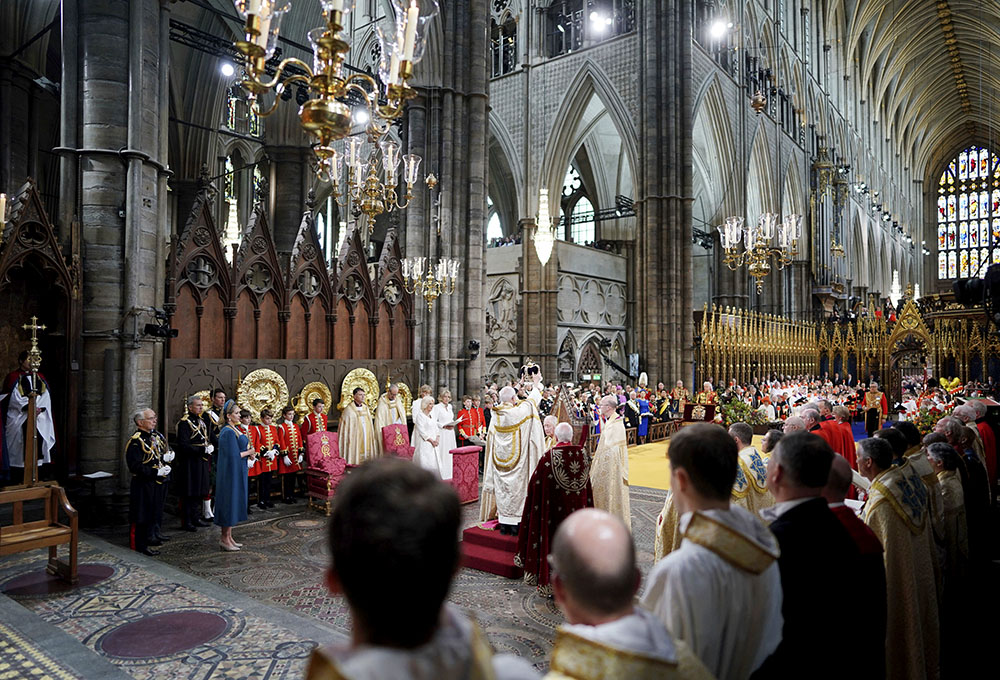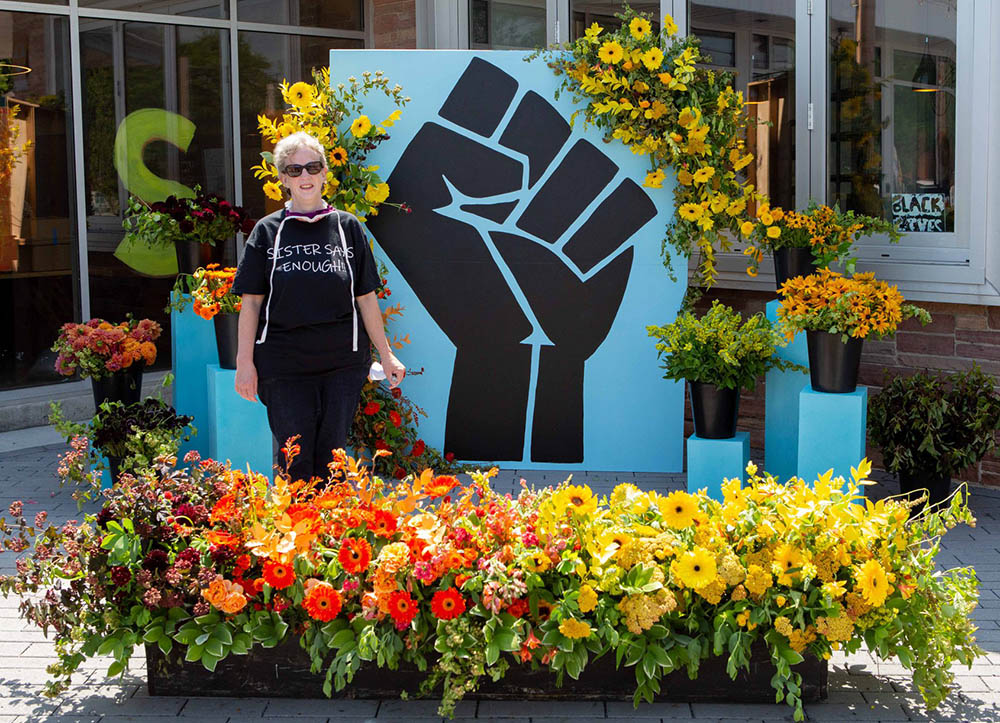
King Charles III sits as he is crowned with St. Edward's Crown by Archbishop of Canterbury Justin Welby during the coronation ceremony at Westminster Abbey, London, May 6. (Jonathan Brady/Pool Photo via AP)
I was reflecting that last spring in the Northern Hemisphere — liturgically the Easter Season — was also "ion" season: first communion, confirmation, ordination, graduation, and in 2023 it was also coronation for England's King Charles III. It was while watching the coronation that it dawned on me that each and every one of the "ion" celebrations includes ceremony, ritual and symbols — and I'd venture to say for most people, the experiences are mysterious, or worse, unnoticed.
It was while watching Charles' coronation that I started to wonder about some of the ceremonies, rituals and symbols we as people in general, and specifically us as sisters, take part in and how odd they must seem to outsiders.
I started thinking: How much do I understand about the various ceremonies, rituals and symbols I encounter? Knowing history is important, but my bigger question is: Why do we continue to do what we do and how could we help people (and maybe ourselves) understand?
I realize a quick Google search could give history around the ceremonies, rituals, and symbols, but Google is for information, not understanding.
Years ago, when there was a mass shooting at the Sikh temple in the area near my home, a prayer service was held and the greater community invited. I knew nothing about the Sikh community, yet I felt compelled to join them for the service.
The Sikhs had greeters to help those of us unfamiliar prepare to enter the prayer space (shoes removed and heads covered) and to make sure we would stay for the food sharing afterward. I remember the beautiful chants, faith and welcome, even though I didn't understand a word.
It was a people in mourning who went the extra mile to make sure visitors felt welcome and included and understood on a basic level what was going on and why.
Here's what I learned — believers are believers and care for others is part of the responsibility.

Sr. Jane Marie Bradish at a Black Lives Matter demonstration in Milwaukee (Lindsay Stayton Photography)
When the Black Lives Matter movement took hold, I joined with others in peaceful protest. I even had a custom shirt made. I am not African American and I have never experienced the kind of discrimination and profiling that members of that community have, but that doesn't mean I can't learn and offer my support.
I learned of the significance of the raised fist symbol. In the midst of those encounters I discovered several black-owned businesses that I now support.
Here's what I learned — each and every cultural and ethnic group has so much to offer if we are willing to open ourselves to something new and different.
The commentators for the broadcast of Charles' coronation explained every symbol and ritual. They knew that the vast majority of people watching had never seen a coronation before, because it had been 70 years since England had had a coronation.
The ceremony was rich in centuries-old tradition, but without the running commentary I would have quickly lost interest. I'm not familiar with pledging my undying loyalty to a person as Prince William did to his father, the now King Charles III. And in 2023, how many scepters and orbs do we see anyway?
Here's what I learned — England's monarchy is about serving God and people.
In late May 2023, the Sisters of Perpetual Indulgence made news, which brought any number of questions from my students. Even after being with them an entire school year, many "don't get it" — they still have no clue why I'm called sister instead of Ms. or Mrs. and what being sister means.
Advertisement
We are all familiar with the usual religious vows of poverty, chastity and obedience. What may not be forefront in our minds is the fact that the vows were and still are countercultural; they are not just "part of the deal." We know what they mean and how we live them out, but how do we show others?
Holding things in common for the greater good, relationships without exclusive or genital expression, and being responsible outside of your immediate wants are foreign concepts in 2023.
My students scoff and ridicule; that always catches me off guard. But when the going gets tough, they still come to sister even though they don't understand my vocation.
Here's what I learned — even amid the scoffs and ridicule, there is interest and attempts at understanding.
So now I'm giving explanations and asking questions. Everyone at school sees the community pendant I wear daily. My answer to "What is that?" is now more than a quick "my community symbol." My answer includes naming the tau and connecting it to Francis of Assisi.
So during "ion season," I remind myself to pay attention. I've attended many first communions, confirmations and graduations (not ordinations or coronation though) — enough that I could simply go through the motions. But doing so misses the point, doesn't it?
Each ceremony is filled with symbol and ritual that someone is experiencing for the first time. What am I noticing for the first time, or for the first time in a long time? In my effort to pay attention, how am I connecting to those before and after me? What am I learning?
As my understanding increases, so does my ability to invite others to share my experiences and open myself to share theirs. What a world it would be if we could all do more of that!







